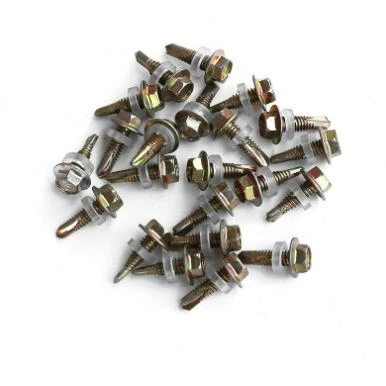

Understanding the Specifications and Uses of Metric T Bolts in Engineering Applications
Nov . 09, 2024 22:51 Back to list
Understanding the Specifications and Uses of Metric T Bolts in Engineering Applications
Understanding Metric T Bolts A Comprehensive Overview
When it comes to fastening solutions in the engineering and construction industries, metric T bolts are a crucial component that cannot be overlooked. Designed for versatility and strength, these fasteners offer a wide range of applications, from securing machinery to holding structural elements in place. In this article, we will delve into the specifics of metric T bolts, exploring their design, materials, applications, and advantages.
What are Metric T Bolts?
Metric T bolts are a type of fastener characterized by their T-shaped head, which allows for easy installation and removal. The unique head design enables these bolts to fit into T-slot rail systems, commonly found in various machinery and equipment. The T shape provides a larger surface area for load distribution, reducing the risk of bolt failure under stress. Typically made from high-strength materials such as steel, stainless steel, or alloy steel, these bolts come with different finishes that enhance their corrosion resistance and durability.
Key Features of Metric T Bolts
1. T-Head Design The hallmark of a T bolt is its T-shaped head, which allows it to slide along a T-slot for easy adjustments. This feature is particularly beneficial in applications where parts need to be frequently repositioned.
2. Metric Sizing Unlike standard imperial bolts, metric T bolts are sized according to the metric system, which uses millimeters as the primary unit of measurement. This standardization facilitates compatibility with other metric components and systems, especially in international projects.
3. Versatile Threading T bolts generally feature fine or coarse threading, allowing them to be compatible with a variety of nuts and washers. The choice of threading can affect the bolt's grip and the materials they can be used with.
4. Material Choices Available in various materials, including carbon steel, stainless steel, and alloy steel, the choice depends on the intended application. Stainless steel T bolts, for example, are ideal for environments that expose the fastener to moisture and chemicals.
Applications of Metric T Bolts
Metric T bolts are found in numerous industries, owing to their flexibility and reliable performance. Key applications include
- Construction Used extensively in structural applications, T bolts secure beams and join different materials, providing stable connections that can withstand considerable loads.
metric t bolts

- Manufacturing They are crucial in assembling machinery and equipment, where precise positioning of components is necessary.
- Automotive Industry T bolts are utilized in various automotive parts where strong and adaptable fastening solutions are required.
- Furniture Assembly In the production of modular furniture, T bolts provide a robust mechanism for assembling parts without the need for specialized tools.
Advantages of Using Metric T Bolts
1. Ease of Use The T-shaped head allows for quick installation and removal without special tools, making assembly and disassembly straightforward and efficient.
2. Strong Connection They offer a firm and reliable connection, capable of withstanding shear and tensile forces, which is essential for critical applications.
3. Flexibility The adjustable nature of T bolts makes them suitable for applications that require frequent modifications or recalibrations.
4. Standard Compatibility Being metric, these bolts align with international standards, making them an excellent choice for global industries that require interchangeable components.
Conclusion
Metric T bolts are a versatile and indispensable element in modern engineering and construction. Their unique design and robust characteristics make them suitable for a wide range of applications, from heavy-duty industrial uses to everyday furniture assembly. As industries continue to evolve and demand more efficient fastening solutions, metric T bolts are likely to play a significant role in meeting these needs.
Understanding the specific features and applications of metric T bolts can help engineers, designers, and builders select the right fasteners for their projects, ensuring safety, stability, and longevity in their constructions and assemblies. By choosing the right materials and specifications, one can maximize the performance and reliability of these critical components in any engineering endeavor.
Latest news
-
High-Strength Hot Dip Galvanized Bolts - Hebei Longze | Corrosion Resistance, Customization
NewsJul.30,2025
-
Hot Dip Galvanized Bolts-Hebei Longze|Corrosion Resistance&High Strength
NewsJul.30,2025
-
High-Strength Hot-Dip Galvanized Bolts-Hebei Longze|Corrosion Resistance&High Strength
NewsJul.30,2025
-
Hot Dip Galvanized Bolts-Hebei Longze|Corrosion Resistance&High Strength
NewsJul.30,2025
-
Hot Dip Galvanized Bolts - Hebei Longze | Corrosion Resistance, High Strength
NewsJul.30,2025
-
High-Strength Hot Dip Galvanized Bolts-Hebei Longze|Corrosion Resistance, Grade 8.8
NewsJul.30,2025

